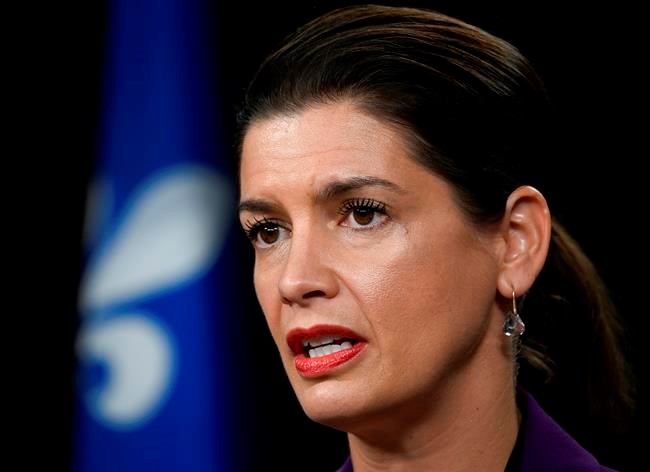QUEBEC — The Coalition Avenir Québec is again being forced to defend its fundraising methods, after the parents of a woman killed in a 2017 car crash said the party offered access to the provincial transport minister for $100 per person.
During a legislature hearing on Thursday, Antoine Bittar said he had been advocating for tougher drinking and driving legislation when the CAQ offered an opportunity for him and his partner, Élizabeth Rivera, to meet minister Geneviève Guilbault at an October 2023 fundraising cocktail.
Bittar said he and Rivera each paid $100 — the maximum annual political donation — because he felt it was a chance to press their cause and keep it from stagnating. The couple said they were offered four minutes with the minister, two minutes per person.
"We had our two minutes and, honestly, when I left, I was really disappointed," Rivera said during the hearing. "I found it unacceptable that we were asked to pay $200 to meet the minister."
Guilbault later confirmed that she had met the couple at the October fundraising cocktail, adding that it was an employee of another member of the legislature who had invited them. She said she had no idea the couple were asked to pay money to meet her.
“No one has to pay to speak to me," Guilbault told reporters. "If there was a clumsiness, if inadvertently there were people uncomfortable because of something that, yes, respected the rules but that perhaps made this woman feel uncomfortable, I'm sorry about that," she said.
The CAQ has been criticized by the opposition in recent weeks for its fundraising strategies, including that mayors were allegedly pressured to pay $100 for access to cabinet ministers. The Canadian Press recently reported that almost half of Quebec's mayors have contributed nearly $100,000 to the CAQ's coffers since the 2021 municipal election.
In response to the revelations, and strong criticism from opponents, Quebec Premier François Legault announced last week his party would stop accepting donations and instead rely exclusively on the public political financing system, which offers parties yearly "allowances" based on their share of the vote in the most recent general election.
This report by The Canadian Press was first published Feb. 8, 2024.
Patrice Bergeron, The Canadian Press




